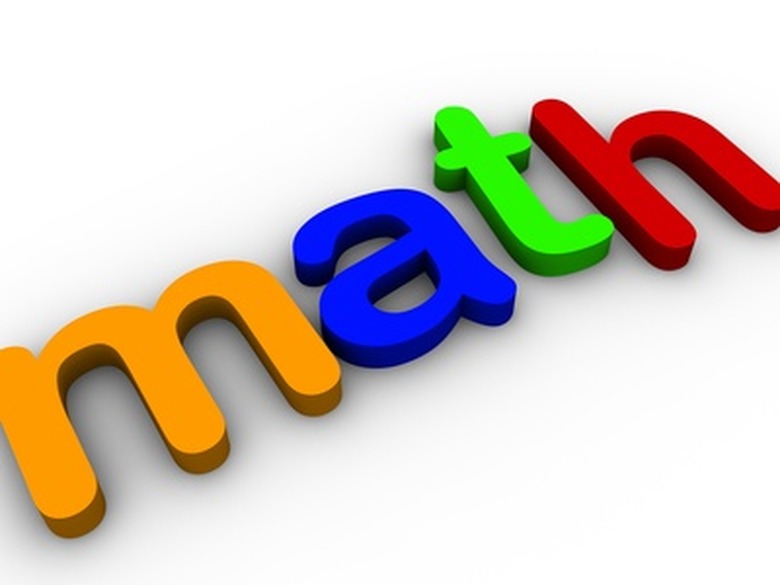Basic Components Of Math
Math is a cumulative subject taught to children from the time they are very young. Because math is cumulative, each component builds upon others. Students must master each component before they are able to completely master the next. The main components, or elements, of math are: addition, subtraction, multiplication and division.
Addition
Addition
Addition is the first component taught to children at a very young age. Parents begin teaching their children how to count toys, cookies, toes and many other things. Knowing how to count is a requirement for learning addition. Addition is simply adding two numbers together. Children begin with very simple problems such as 1 + 1 = 2 and then gradually move on to larger numbers that include the principle of "carrying" numbers. This principle is illustrated in a problem such as 109 + 215 = 324. The answer to an addition problem is called the sum. A good understanding of addition is needed to move on to the next component in math.
Subtraction
Subtraction
Subtraction is the second component taught in math after addition is learned and understood. Subtraction is often considered the opposite of addition. With subtraction, the difference of two numbers is found. Subtraction is taught first with simple problems such as 4 – 1 = 3. The answer to a subtraction problem is called the difference. It gradually increases in difficulty to problems containing much larger numbers.
Multiplication
Multiplication
The third component of math is multiplication. Two numbers are multiplied, and the product is found. Kids learning multiplication often refer to it as "times." The multiplication component of math takes one number "times" another number. Teachers often recite multiplication charts aloud with students in the classroom to help students memorize these math facts. Students begin learning the "1" times table and continue moving on all the way through 12 generally.
Division
Division
Division is the final main component math is built around. The other three components should be completely mastered prior to learning division. Division is often thought of as the opposite of multiplication. When students know multiplication facts well, division typically is learned more easily. Division takes one number and divides it by another. The answer found is called the quotient. Students begin learning with small numbers in problems such as 4/2 = 2. Division then moves on to large numbers for which remainders come into play.
Cite This Article
MLA
VanBaren, Jennifer. "Basic Components Of Math" sciencing.com, https://www.sciencing.com/basic-components-math-7859470/. 24 April 2017.
APA
VanBaren, Jennifer. (2017, April 24). Basic Components Of Math. sciencing.com. Retrieved from https://www.sciencing.com/basic-components-math-7859470/
Chicago
VanBaren, Jennifer. Basic Components Of Math last modified August 30, 2022. https://www.sciencing.com/basic-components-math-7859470/
